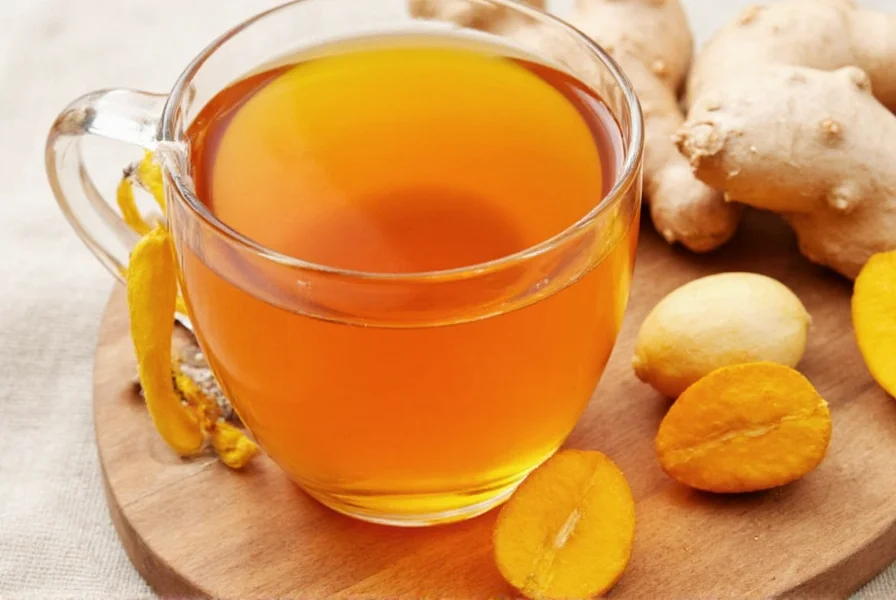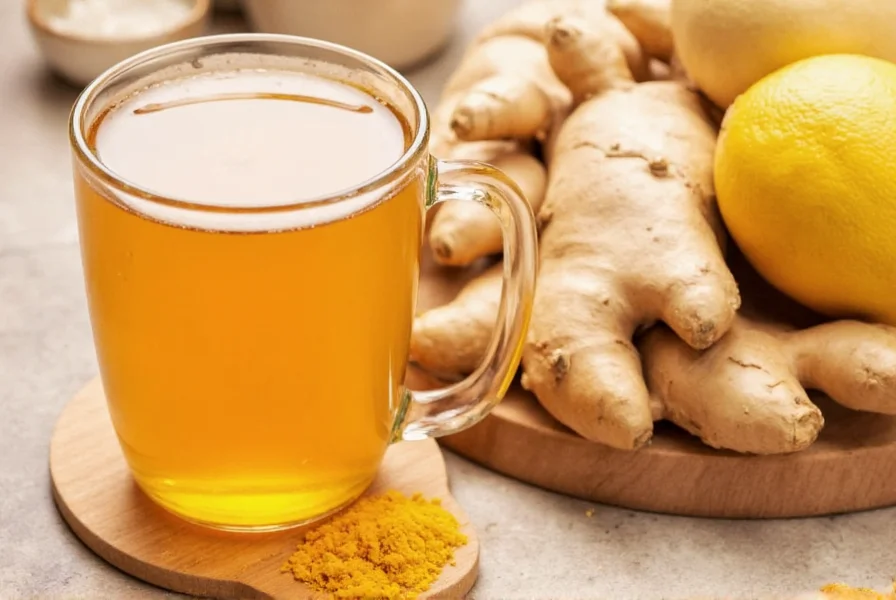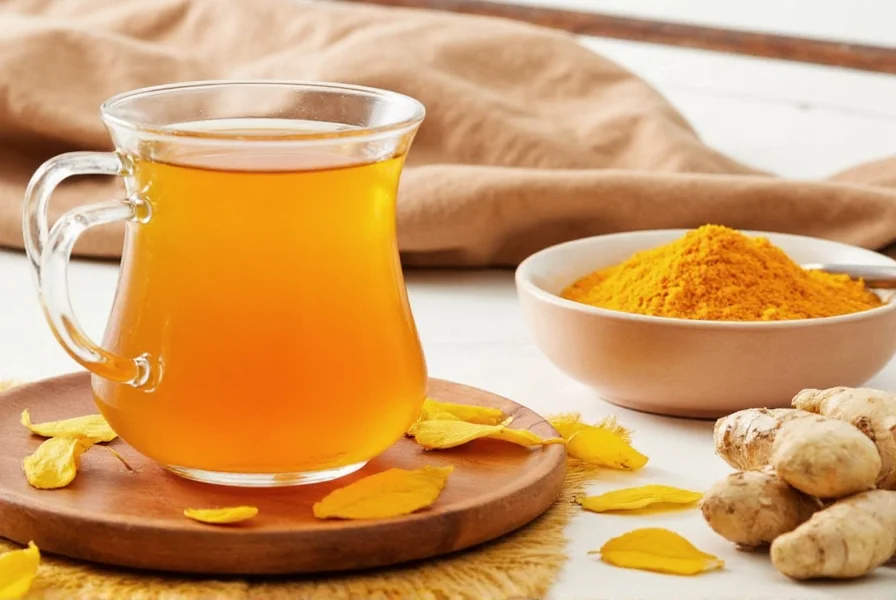Curcuma ginger tea has gained significant attention in wellness circles for its potential health-promoting properties. This golden-hued beverage combines two potent botanicals with centuries of traditional use in Ayurvedic and Chinese medicine. Unlike commercial tea bags that often contain minimal active compounds, properly prepared curcuma ginger tea delivers therapeutic levels of curcumin and gingerols—the key bioactive compounds responsible for their health benefits.

Understanding Curcuma and Ginger Components
Curcuma, commonly known as turmeric, contains curcuminoids, with curcumin being the most studied compound. Ginger contributes gingerols and shogaols, potent anti-inflammatory agents. When combined in tea form, these ingredients create a synergistic effect that may enhance their individual benefits.
The effectiveness of curcuma ginger tea largely depends on proper preparation. Curcumin, turmeric's primary active compound, has low bioavailability on its own. Research shows that combining turmeric with black pepper (containing piperine) can increase curcumin absorption by up to 2,000%. Similarly, consuming these compounds with healthy fats improves their uptake in the body.
Scientifically Supported Health Benefits
Multiple clinical studies have investigated the health effects of curcuma and ginger. A 2022 meta-analysis published in Nutrients reviewed 27 clinical trials examining curcumin's anti-inflammatory effects. The analysis concluded that curcumin supplementation significantly reduced inflammatory markers like C-reactive protein, particularly when formulated for enhanced absorption.
Ginger's digestive benefits are well-documented. Research in the World Journal of Gastroenterology demonstrated that ginger accelerates gastric emptying and reduces nausea. When combined in tea form, these ingredients may provide complementary digestive support.
| Compound | Primary Benefits | Optimal Daily Intake |
|---|---|---|
| Curcumin | Anti-inflammatory, antioxidant, joint support | 500-1,000 mg (with piperine) |
| Gingerols | Digestive support, nausea reduction | 1-1.5 g fresh ginger |
Preparing Effective Curcuma Ginger Tea
Creating therapeutic curcuma ginger tea requires attention to preparation details. Here's a science-backed method to maximize benefits:
- Use 1 teaspoon of freshly grated turmeric root or ½ teaspoon of high-quality turmeric powder
- Add 1 teaspoon of freshly grated ginger
- Pour 2 cups of near-boiling water over the ingredients
- Add a pinch of black pepper (essential for curcumin absorption)
- Include 1 teaspoon of healthy fat (coconut oil or ghee) to enhance bioavailability
- Steep for 10-15 minutes
- Strain and add lemon or honey to taste
This preparation method for homemade curcuma ginger tea ensures maximum extraction of active compounds while addressing the bioavailability challenges associated with curcumin. Many commercially available tea bags contain insufficient quantities of these ingredients to provide meaningful benefits.

Evidence-Based Usage Guidelines
For optimal results when consuming turmeric ginger tea, timing matters. Research suggests drinking curcuma ginger tea:
- 30 minutes before meals to support digestion
- In the morning to reduce inflammation throughout the day
- Before bedtime for joint pain relief during sleep
The most effective curcuma longa and ginger tea regimen involves consistent daily consumption. Studies showing significant benefits typically involve daily intake over 4-8 weeks. Unlike quick-fix supplements, this herbal tea works cumulatively to support the body's natural inflammatory response.
Safety Considerations and Potential Interactions
While generally safe, curcuma ginger tea may not be appropriate for everyone. Important considerations include:
- Individuals taking blood thinners should consult a healthcare provider before regular consumption
- Those with gallbladder issues should exercise caution with turmeric
- Pregnant women should limit ginger intake to moderate amounts
- Curcuma may interact with certain diabetes medications
Understanding curcuma ginger tea side effects is crucial for safe consumption. Some people experience mild digestive upset when first introducing these potent botanicals. Starting with smaller amounts and gradually increasing helps assess individual tolerance.
Maximizing the Benefits of Your Daily Cup
To enhance the effectiveness of your turmeric ginger tea preparation, consider these evidence-based additions:
- Healthy fats: Coconut oil or ghee significantly improves curcumin absorption
- Citrus: Lemon juice increases solubility of curcuminoids
- Heat: Simmering (not just steeping) extracts more active compounds
- Timing: Consuming with meals containing fats further enhances bioavailability
For those seeking the most effective curcuma ginger tea recipe, these modifications transform a simple herbal infusion into a potent functional beverage with measurable health benefits.
Frequently Asked Questions
How often should I drink curcuma ginger tea for optimal benefits?
For consistent health benefits, most research suggests consuming curcuma ginger tea once or twice daily. Clinical studies showing significant anti-inflammatory effects typically involve daily consumption over 4-8 weeks. Start with one cup daily and monitor your body's response before increasing frequency.
Can I use ground turmeric instead of fresh root in my tea?
Yes, you can use high-quality organic turmeric powder, but fresh turmeric root generally contains higher levels of active compounds. If using powder, choose a reputable brand that tests for curcumin content (aim for 3-5% curcumin). Remember to always include black pepper and a healthy fat to maximize absorption, regardless of whether you use fresh or powdered ingredients.
What's the best time of day to drink turmeric ginger tea?
The optimal timing depends on your health goals. For digestive support, drink 30 minutes before meals. For inflammation reduction, morning consumption helps manage全天 inflammatory responses. For joint pain relief, evening consumption may provide overnight benefits. Many people benefit from drinking one cup in the morning and another in the evening for comprehensive support.
How long does it take to notice benefits from regular curcuma ginger tea consumption?
Most people begin noticing subtle benefits within 2-3 weeks of daily consumption, with more significant effects appearing after 4-8 weeks. Research on curcumin's anti-inflammatory effects typically shows measurable changes in inflammatory markers after 4 weeks of consistent use. Individual responses vary based on metabolism, existing health conditions, and preparation method.
Can I store prepared curcuma ginger tea for later consumption?
While freshly prepared tea offers maximum benefits, you can store curcuma ginger tea in the refrigerator for up to 48 hours. The active compounds remain stable during this period, though some potency may decrease. Store in a glass container with minimal headspace to reduce oxidation. When reheating, avoid boiling as high heat can degrade some beneficial compounds.











 浙公网安备
33010002000092号
浙公网安备
33010002000092号 浙B2-20120091-4
浙B2-20120091-4